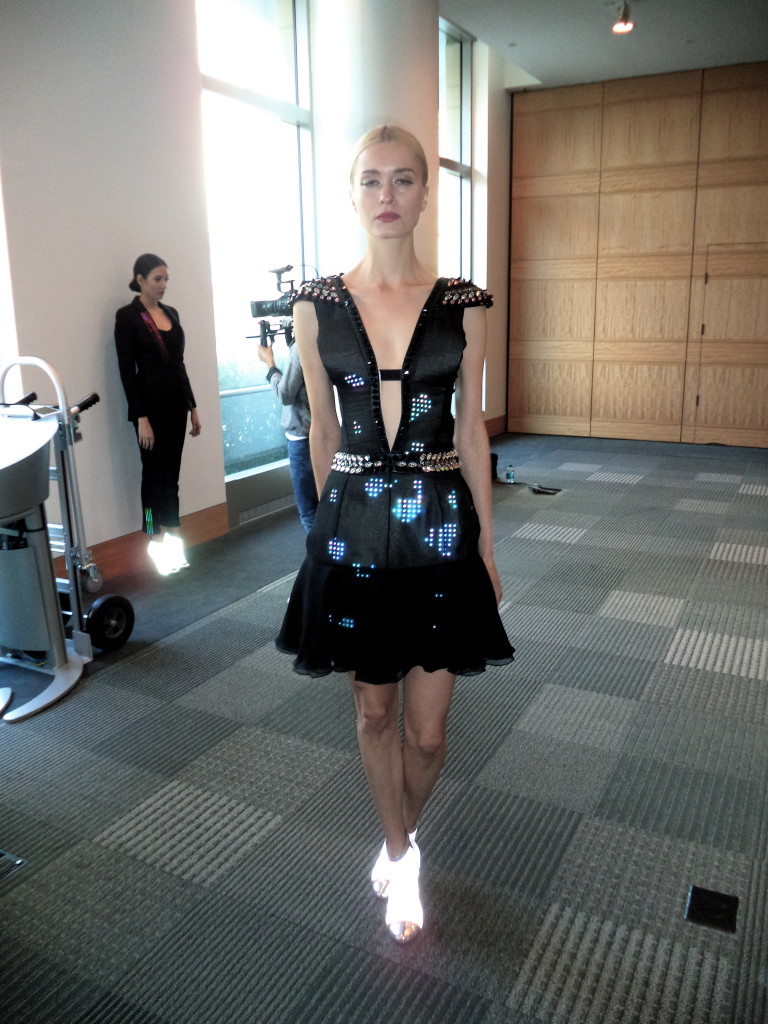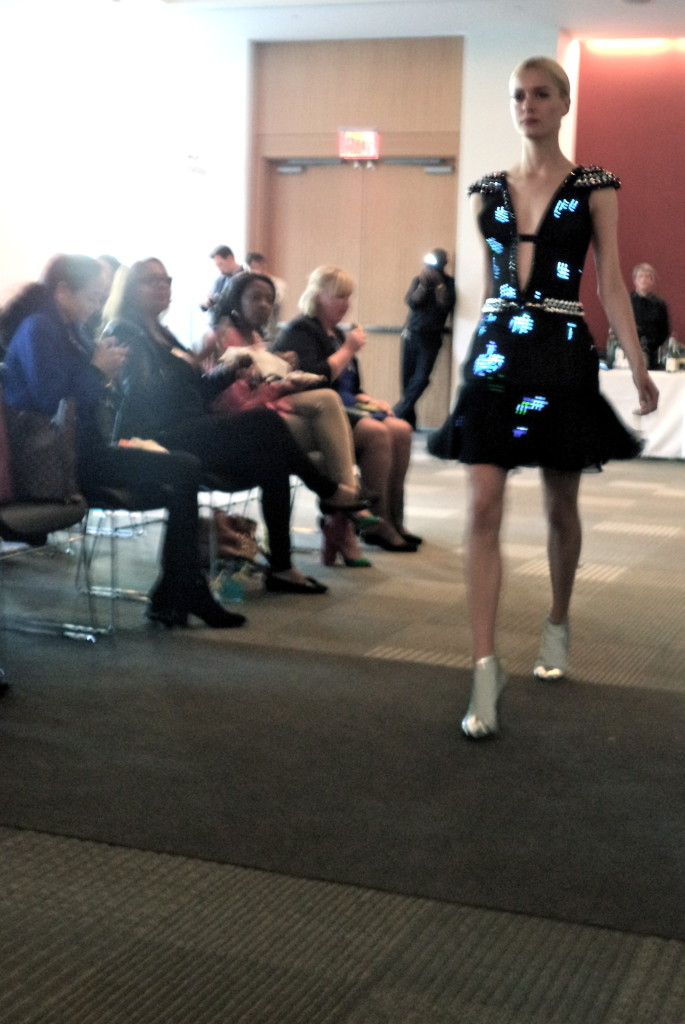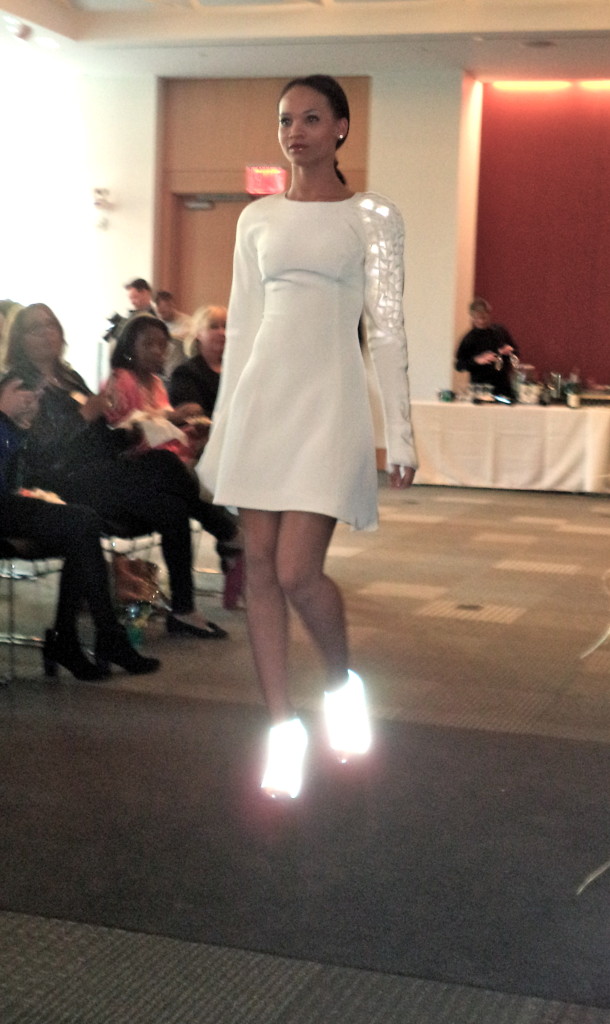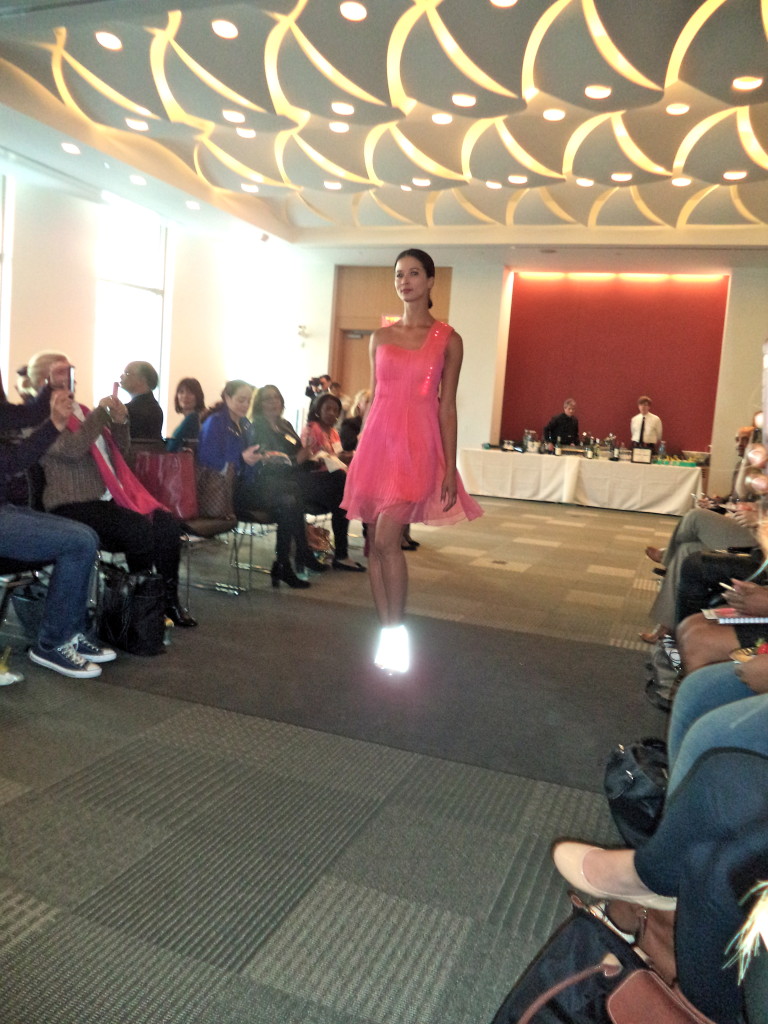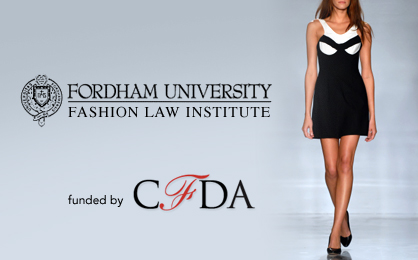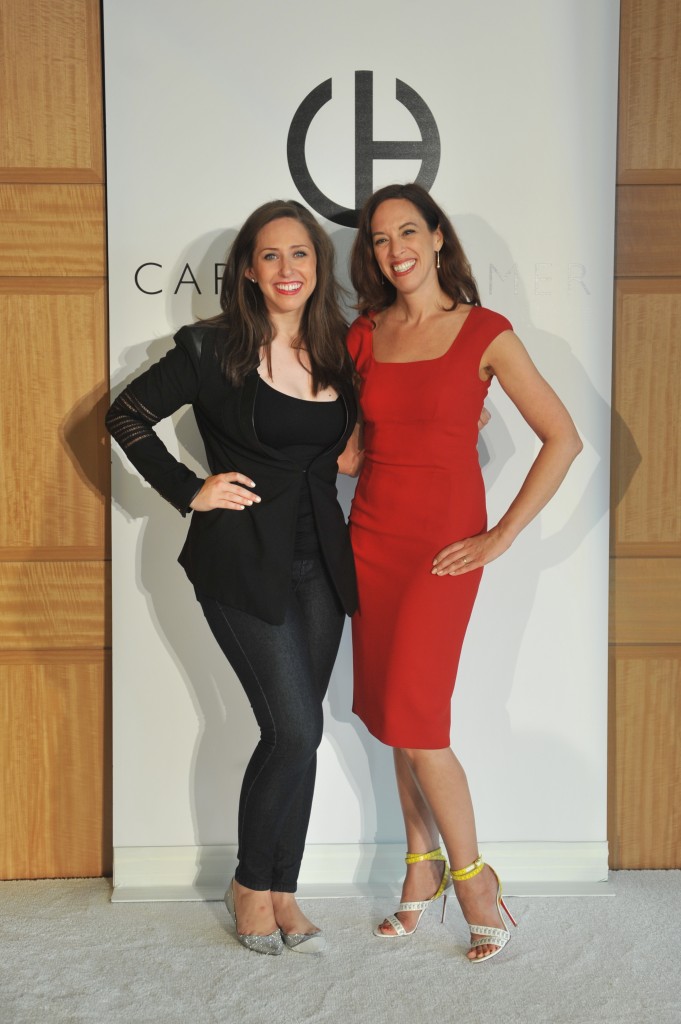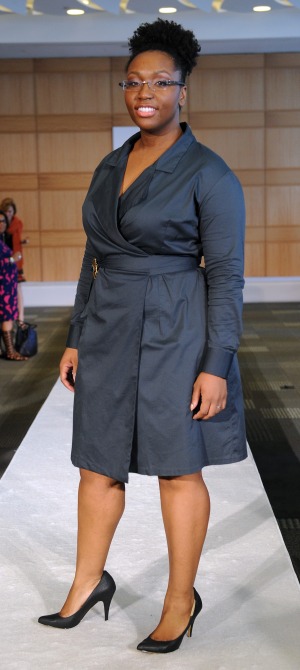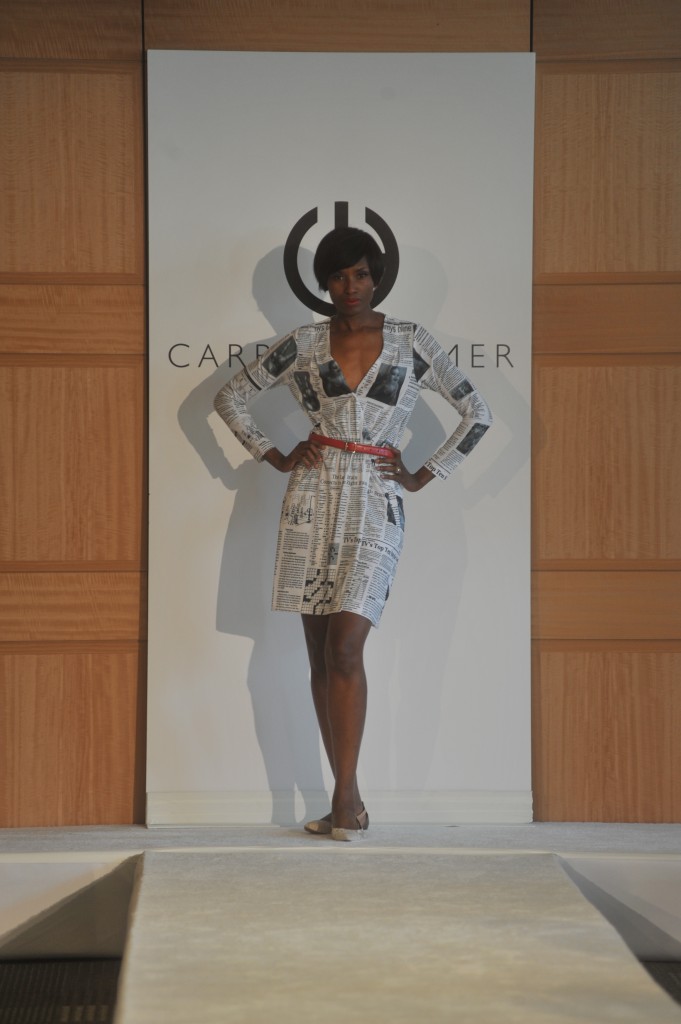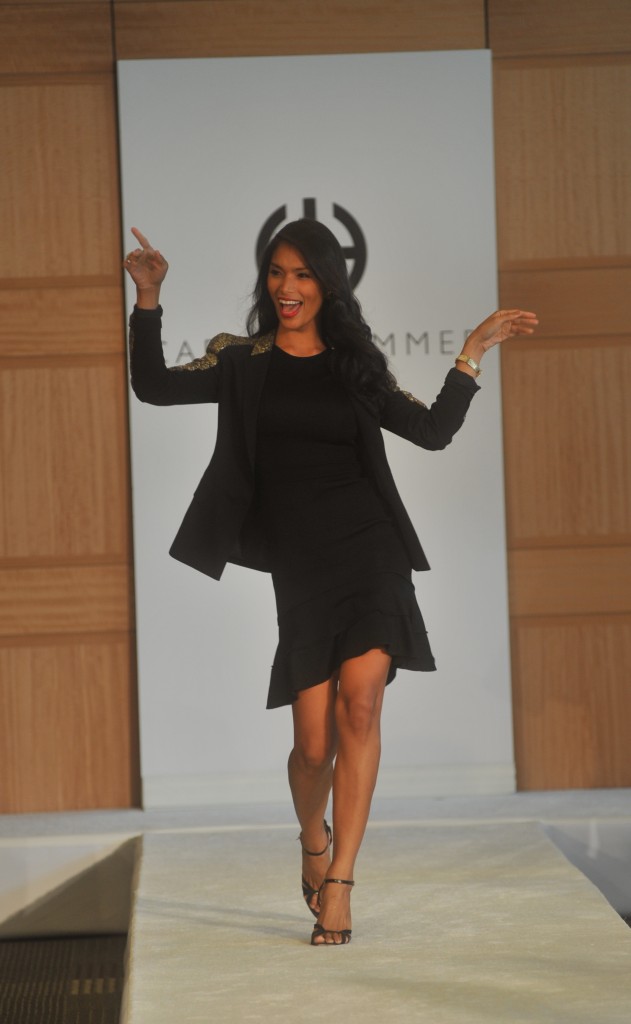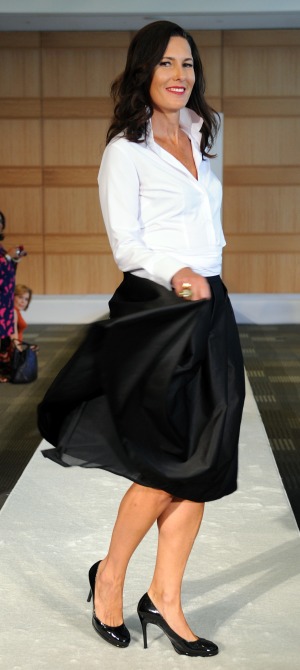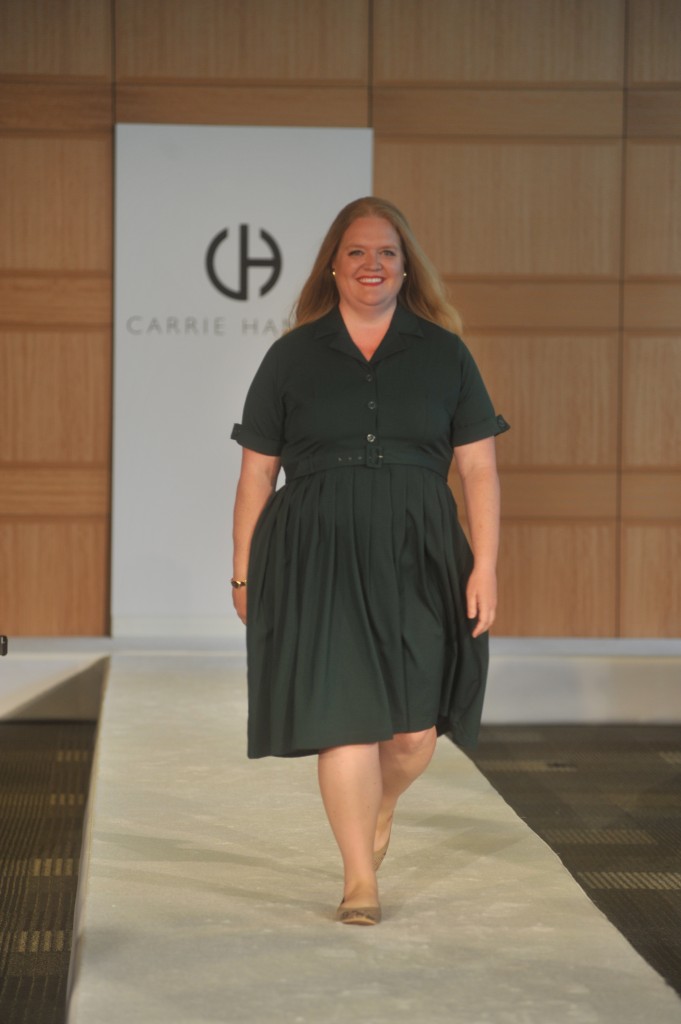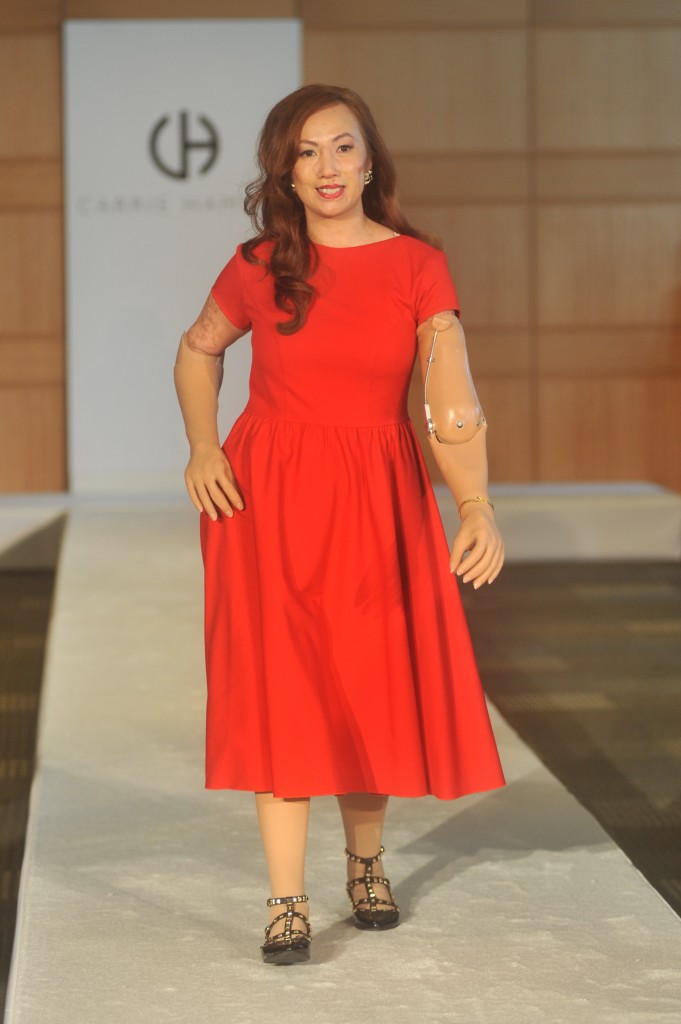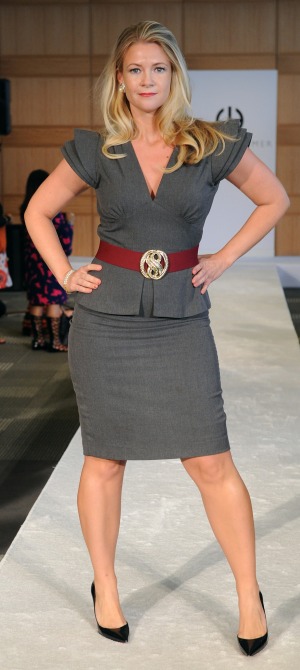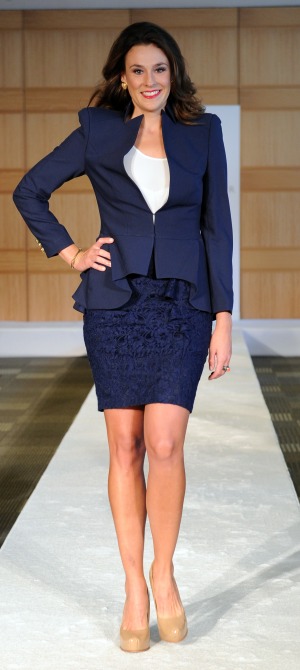So I have already written 2 previous posts on Fordham Law School’s annual Fashion Law Symposium, thru the Fashion Law Institute. Time has passed since the symposium, but the topical discussions were still worthy of a Fashion Nexus write-up! In addition, I have yet to share the major fun, non-topical portion of the event, a special fashion show by technological fashion brand CuteCircuit. So throughout this post are various images from this exciting runway presentation!!
But back to the panels, there was Power Dressing: Politics, Dress Codes, and the Public Eye.
Panelists were —
- Jeffrey Banks — Designer & author
- Vanessa Friedman — The NY Times
- Carol Hochman — RHH Capital & Consulting
- Rachel Larris — Women’s Media Center
- Lyn Paolo — Costume Designer
- Moderator: Professor Susan Scafidi, Fashion Law Institute at Fordham
I was not present at this discussion, but it was all about looking at public figures, and one’s appearance being scrutinized and criticized. Fashion is a means of communication, so many who are in the public eye, politicians, celebs, executives, and the like use their clothing to establish an image and/or convey a message. Media coverage has also been ever-increasing in this area, and has become quite controversial, inspiring campaigns such as #AskHerMore and backlash over gender-specific dress codes. So how does commentary about clothing affect the wearer, and should this type of commentary be off limits? What constitutes power dressing in an era when hemlines no longer rise and fall by fiat? And when organizations contemplate dress codes, how can they stay on the right side of both public opinion and the law?
Next up, The Power of 2: Licensing and Wearable Technology. The panelist were —
- Adam Clark Estes — Gizmodo
- Monica B. Richman — Dentons
- Francesca Rosella & Ryan Genz — CuteCircuit
- Natasha Sardesai-Grant — Ralph Lauren
- Moderator — Rob Sanchez, Manufacture NY
In light of the wearable technology fashion show we would all later experience, this topic of discussion was spot on. Fashion and technology is on the rise. It’s a fast growing sector, from luxury consumer shopping at Ralph Lauren with the Lauren Ricky Bag with light or to Apple’s rose gold watch. But wearable tech is not the product of one industry, it’s two.
A previous panel discussion from another year discussed patents and data privacy in the context of wearable. So with this discussion, the focus was shifted to how best to bring together these two industries, the different legal cultures, especially in the area of IP protection. Plans were discussed on how brands could source out for this tech work, such as with license agreements. There was also talks then again to budgets and how to allocate for IP protection. This area is still emerging so I am sure it will be a topic at fashion law panels to come.
All in all, I had a great time covering the Fashion Law Symposium and it was amazing now share these fashion law areas with all of my readers. In light of Fordham Law’s recent news with now having fashion law be an academic degree, thanks in part to the CFDA, these continued discussions on Fashion Law, and the many aspects it entails is highly important in the fashion industry. I look forward to continuing my research and discussion in this growing field!

